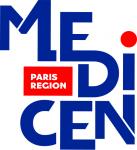Développement d'une plateforme enzymatique modulaire pour la conception et la synthèse in silico de peptides thérapeutiques novateurs via le splicing de protéines // Development of a Modular Enzymatic Platform for the In Silico Design and Synthesis of Nov
| ABG-134047 | Thesis topic | |
| 2025-10-28 | Public/private mixed funding |
CEA Université Grenoble Alpes
Grenoble
Développement d'une plateforme enzymatique modulaire pour la conception et la synthèse in silico de peptides thérapeutiques novateurs via le splicing de protéines // Development of a Modular Enzymatic Platform for the In Silico Design and Synthesis of Nov
- Biology
Biologie structurale / Sciences du vivant / Chimie biologique / Sciences du vivant
Topic description
La montée de la résistance aux antimicrobiens (RAM) est devenue une épidémie lente, alimentée par la surutilisation des antibiotiques, conjuguée à un ralentissement dans la découverte de nouveaux agents antimicrobiens au cours des quatre dernières décennies. Pour faire face à cette crise urgente, il est nécessaire d’adopter une utilisation plus judicieuse des antibiotiques existants, tout en découvrant des médicaments innovants capables de surmonter la résistance des agents pathogènes. Dans ce contexte, l’immense volume de données génomiques générées dans l’ère des omiques a revitalisé l’intérêt pour les produits naturels, qui constituent une source précieuse de composés innovants. Parmi eux, les peptides naturels—aux propriétés chimiques uniques et diversifiées—sont particulièrement attractifs en tant que potentiels antibiotiques, agents anticancer ou inhibiteurs ciblant des processus pathologiques spécifiques.
L’objectif de cette thèse est de développer une plateforme enzymatique innovante, modulaire, permettant la conception et la synthèse in silico de peptides dotés d’une diversité chimique sans précédent. Au cœur de cette approche se trouve l’exploitation d'une réaction chimique unique : le splicing de protéines. Ce processus innovant permet une élimination ou une modification précise de séquences peptidiques spécifiques, offrant une base puissante pour générer des peptides hybrides avec des fonctionnalités sur mesure, y compris des agents thérapeutiques potentiels.
Ce projet intégrera des études structurales et fonctionnelles, la conception de peptides assistée par ordinateur, ainsi que l’ingénierie enzymatique, dans le but d’élargir la diversité chimique et fonctionnelle des molécules peptidiques. Le candidat retenu évoluera dans un environnement de recherche à la pointe de la technologie, doté d’installations de pointe et favorisant les opportunités de collaboration—encourageant ainsi des approches innovantes et des contributions significatives dans le domaine.
------------------------------------------------------------------------------------------------------------------------------------------------------------------------
------------------------------------------------------------------------------------------------------------------------------------------------------------------------
The rise of antimicrobial resistance (AMR) has developed into a slow-moving epidemic, fueled by the overuse and misuse of antibiotics, coupled with a stagnation in the development of new antimicrobial agents over the past four decades. Addressing this crisis requires not only more judicious use of existing antibiotics but also the development of innovative drugs capable of overcoming resistant pathogens. In this context, the abundant genomic data generated in the omics era has facilitated the resurgence of natural products as a vital source of novel compounds. Among these, natural peptides—with their unique and diverse chemical properties—have garnered particular interest as potential antibiotics, anticancer agents, and inhibitors targeting specific pathological processes.
The aim of this PhD project is to develop a novel, modular enzymatic tool that enables the in silico design and synthesis of peptides with unprecedented chemical diversity. Central to this approach is the exploitation of a unique chemical reaction: protein splicing. This innovative reaction allows precise removal or editing of specific peptidic sequences, thereby providing a powerful platform to generate hybrid peptides with tailored functionalities, including potential therapeutic agents.
This project will integrate structural and functional studies, computational peptide design and enzyme engineering, aiming to expand the chemical and functional diversity of peptide-based molecules. The successful candidate will work in a state-of-the-art research setting, equipped with cutting-edge facilities and collaborative opportunities, fostering innovative approaches and impactful contributions to the field.
------------------------------------------------------------------------------------------------------------------------------------------------------------------------
------------------------------------------------------------------------------------------------------------------------------------------------------------------------
Pôle fr : Direction de la Recherche Fondamentale
Département : Institut de Recherche Interdisciplinaire de Grenoble
Service : DBSCI
Date de début souhaitée : 01-10-2026
Ecole doctorale : Chimie et Sciences du Vivant (EDCSV)
Directeur de thèse : DE LA MORA LUGO Eugenio
Organisme : CEA
Laboratoire : DRF
URL : https://www.ibs.fr/fr/recherche/assemblage-dynamique-et-reactivite/groupe-metalloproteines-y-nicolet/
L’objectif de cette thèse est de développer une plateforme enzymatique innovante, modulaire, permettant la conception et la synthèse in silico de peptides dotés d’une diversité chimique sans précédent. Au cœur de cette approche se trouve l’exploitation d'une réaction chimique unique : le splicing de protéines. Ce processus innovant permet une élimination ou une modification précise de séquences peptidiques spécifiques, offrant une base puissante pour générer des peptides hybrides avec des fonctionnalités sur mesure, y compris des agents thérapeutiques potentiels.
Ce projet intégrera des études structurales et fonctionnelles, la conception de peptides assistée par ordinateur, ainsi que l’ingénierie enzymatique, dans le but d’élargir la diversité chimique et fonctionnelle des molécules peptidiques. Le candidat retenu évoluera dans un environnement de recherche à la pointe de la technologie, doté d’installations de pointe et favorisant les opportunités de collaboration—encourageant ainsi des approches innovantes et des contributions significatives dans le domaine.
------------------------------------------------------------------------------------------------------------------------------------------------------------------------
------------------------------------------------------------------------------------------------------------------------------------------------------------------------
The rise of antimicrobial resistance (AMR) has developed into a slow-moving epidemic, fueled by the overuse and misuse of antibiotics, coupled with a stagnation in the development of new antimicrobial agents over the past four decades. Addressing this crisis requires not only more judicious use of existing antibiotics but also the development of innovative drugs capable of overcoming resistant pathogens. In this context, the abundant genomic data generated in the omics era has facilitated the resurgence of natural products as a vital source of novel compounds. Among these, natural peptides—with their unique and diverse chemical properties—have garnered particular interest as potential antibiotics, anticancer agents, and inhibitors targeting specific pathological processes.
The aim of this PhD project is to develop a novel, modular enzymatic tool that enables the in silico design and synthesis of peptides with unprecedented chemical diversity. Central to this approach is the exploitation of a unique chemical reaction: protein splicing. This innovative reaction allows precise removal or editing of specific peptidic sequences, thereby providing a powerful platform to generate hybrid peptides with tailored functionalities, including potential therapeutic agents.
This project will integrate structural and functional studies, computational peptide design and enzyme engineering, aiming to expand the chemical and functional diversity of peptide-based molecules. The successful candidate will work in a state-of-the-art research setting, equipped with cutting-edge facilities and collaborative opportunities, fostering innovative approaches and impactful contributions to the field.
------------------------------------------------------------------------------------------------------------------------------------------------------------------------
------------------------------------------------------------------------------------------------------------------------------------------------------------------------
Pôle fr : Direction de la Recherche Fondamentale
Département : Institut de Recherche Interdisciplinaire de Grenoble
Service : DBSCI
Date de début souhaitée : 01-10-2026
Ecole doctorale : Chimie et Sciences du Vivant (EDCSV)
Directeur de thèse : DE LA MORA LUGO Eugenio
Organisme : CEA
Laboratoire : DRF
URL : https://www.ibs.fr/fr/recherche/assemblage-dynamique-et-reactivite/groupe-metalloproteines-y-nicolet/
Funding category
Public/private mixed funding
Funding further details
Presentation of host institution and host laboratory
CEA Université Grenoble Alpes
Pôle fr : Direction de la Recherche Fondamentale
Département : Institut de Recherche Interdisciplinaire de Grenoble
Service : DBSCI
Candidate's profile
Apply
Close
Vous avez déjà un compte ?
Nouvel utilisateur ?
More information about ABG?
Get ABG’s monthly newsletters including news, job offers, grants & fellowships and a selection of relevant events…
Discover our members
 TotalEnergies
TotalEnergies  Généthon
Généthon  Nokia Bell Labs France
Nokia Bell Labs France  ADEME
ADEME  Tecknowmetrix
Tecknowmetrix  ONERA - The French Aerospace Lab
ONERA - The French Aerospace Lab  Ifremer
Ifremer  Nantes Université
Nantes Université  Groupe AFNOR - Association française de normalisation
Groupe AFNOR - Association française de normalisation  SUEZ
SUEZ  Servier
Servier  Medicen Paris Region
Medicen Paris Region  ANRT
ANRT  ASNR - Autorité de sûreté nucléaire et de radioprotection - Siège
ASNR - Autorité de sûreté nucléaire et de radioprotection - Siège  Institut Sup'biotech de Paris
Institut Sup'biotech de Paris  Laboratoire National de Métrologie et d'Essais - LNE
Laboratoire National de Métrologie et d'Essais - LNE  Aérocentre, Pôle d'excellence régional
Aérocentre, Pôle d'excellence régional

